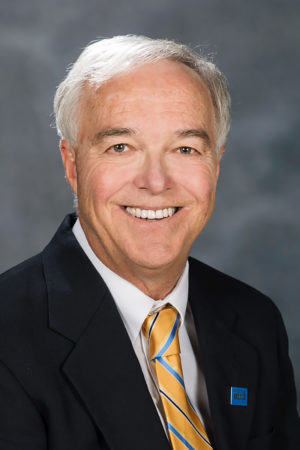
People who believe there is no attack on the free press in the U.S. need only read an opinion by U.S. Supreme Court Justice Clarence Thomas that was issued on June 27. Thomas dissented from a decision by a majority of the justices not to consider overturning the New York Times v. Sullivan case. Times v. Sullivan has protected the ability of news media to report on public figures without risking a libel suit whenever they report something negative.
The Times v. Sullivan protections allow the news media “to cast false aspersions on public figures with near impunity,” Thomas wrote. He claimed the Supreme Court should “not insulate those who perpetuate lies from traditional remedies like libel suits.”
It”™s no secret that Donald Trump and his enablers, before, after and during his four years as president, convinced millions of people that the news media are “the enemy of the people.” Countless people now shun professional journalism and instead voluntarily consume consistent diets of propaganda and outright lies.
This comes at a time when journalism at all levels, especially local, is under financial pressure that has brought about the shrinking of staffs at newspapers and broadcasting outlets, mergers and business closures. The internet provides a competing flood of information including from unknown, unprofessional and even sinister sources. Yet, faith in the ability of professional journalists to deliver what people need to know as well as what they want to know has not been entirely lost.
A former Westchester resident and journalism expert is at the forefront of encouraging support for local journalism and a rebirth of what had been an American compulsion to be well-informed and in touch with the local community, nation and world.
Ken Paulson, who used to live in Waccabuc, was editor-in-chief for the 13 titles of the Gannett Suburban Newspapers from 1992 to 1996 serving Westchester and the Hudson Valley. He now is director of the Free Speech Center and a professor in the Recording Industry Department at Middle Tennessee State University (MTSU) based in Murfreesboro, Tennessee. He is the dean emeritus of MTSU”™s College of Media and Entertainment. When with Gannett, Paulson also served as editor-in-chief of USA TODAY and continues to serve as a columnist on USA TODAY”™s board of contributors, writing about media and First Amendment issues.
At Gannett, Paulson helped the company take the first tentative steps into the digital publishing world.
“The newspaper industry has had plenty of time to prepare for the transition to digital,” Paulson said. “Early conversations were about how there would be a decline in print revenue and an increase in digital revenue. There are some extraordinary newspapers, The New York Times and The Washington Post among them, who are so deep in quality that they can transcend platforms.”
Paulson said that local newspapers will have to become hyperlocal and do a better job of covering their communities and provide a range of other services such as photo reprints.
“One shift that none of us in society really anticipated is that people would stop caring about the communities in which they lived,” Paulson told the Business Journals. “How did that happen? How is it that the public seems to no longer care whether someone sitting in a chair at their council meeting is going to be raising their taxes? How is it the public doesn”™t seem to care? When did it become cool not to know stuff?”
Paulson said there always was a belief that local news would be supported because it is so essential.
“Increasingly, it appears the public is willing to roll the dice and just complain about anything the government does on Facebook,” Paulson said. “I often said you should buy a local newspaper not because you read it religiously every day but because you”™re hiring somebody to look after your interests.”
Paulson said that anyone who is willing to believe a politician who sells the idea that legitimate news organizations are publishing “fake news” probably can”™t be saved from their own biases. He said that parents have a responsibility to ensure that their children grow up with a good sense of what news coverage is all about, why it”™s important to know what”™s going on in the world, nation and their community and how to determine that a news source is legitimate.
“What needs to happen is what has always been missing from news organizations. We have never made the case for what we do,” Paulson said. “Every industry that you can think of does institutional ads that remind Americans of their value in society. There has been a self-consciousness about promoting ourselves and not beating our chests. You do that enough and a lot of other people will be beating on your chests. This is something that I don”™t think can be turned around quickly.”
Paulson said that in any community in America, mayors come and go, city councils come and go, but in many communities the local newspaper has remained for decades.
“It was read by your parents; it was read by your grandparents. It is the one institution in town that always serves this particular community,” Paulson said. “That story needs to be told over and over again.”
Paulson said that local newspaper publishers need to convey to the business community just how fragile their service is these days and just how central it is to a community.
“Newspapers and the free flow of information drive a local economy,” Paulson said. “There was a time in America when every employer in that initial job interview would look for signs that an applicant was invested in the community. I”™ve always asked people that I was considering hiring what they knew about the community and what their news diet was.”
Paulson said that when people are familiar with the news about what”™s going on in a community, they can help keep a company in touch and responsive and that leads to more business.
“Small towns and large cities alike would never think about not having a public library. It would be unthinkable. Or, a public swimming pool, that would be impossible,” Paulson said. “Yet, a stunning number are willing to let this extraordinary resource go, and we cannot allow that to happen.”





















